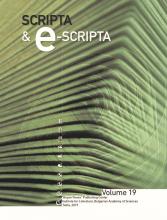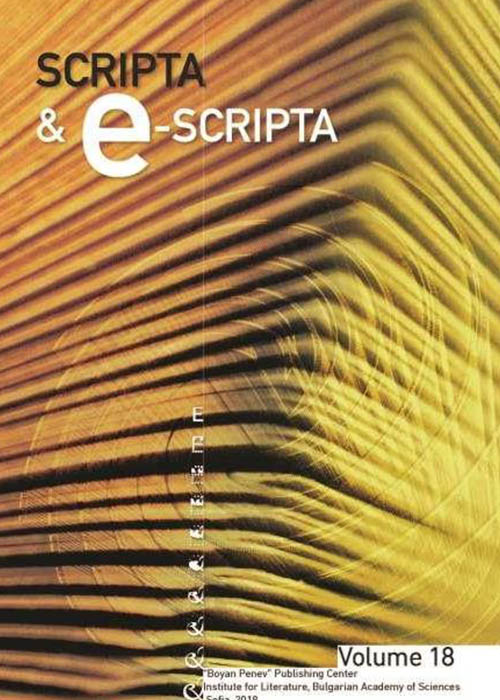Литературный феномен «переписывания» (‘rewriting’) в Исторической Палее и Авраамовом цикле славянских сборников
The Literary Phenomenon of ‘Rewriting’ in the Palaea Historica and the Cycle About Abraham in Slavic Collections

